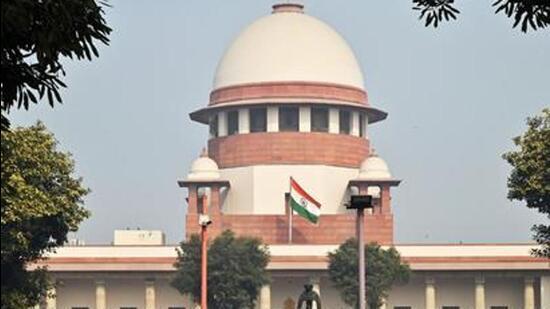
Calling someone ‘Miyan-Tiyan’ & ‘Pakistani’ not an offence: Supreme Court
In a significant ruling, the Supreme Court has declared that using phrases like “Miyan-Tiyan” and “Pakistani” to address someone is not an offence. The court’s decision comes in the wake of a case filed against an 80-year-old man in Jharkhand, who was accused of hurling abuses at an Urdu translator.
The case was filed after the translator, who was working in a government office, alleged that the elderly man had used derogatory language against him. The police registered a case against the 80-year-old under Section 294 of the Indian Penal Code (IPC), which pertains to using obscene language in public.
However, during the hearing of the case, the Supreme Court observed that the remarks made by the elderly man were “in poor taste” but did not constitute an offence. The court ruled that the use of phrases like “Miyan-Tiyan” and “Pakistani” does not amount to hurting the religious sentiments of any individual.
The Supreme Court’s decision is a significant relief to the elderly man, who was facing the possibility of being booked under a criminal offence. The court’s ruling also highlights the importance of distinguishing between words and actions that are intended to hurt someone’s religious sentiments and those that are simply used in a derogatory manner.
The case highlights the ongoing debate about the use of language in India, particularly when it comes to addressing people from different religious backgrounds. While some argue that using phrases like “Miyan-Tiyan” and “Pakistani” is a deliberate attempt to hurt someone’s religious sentiments, others argue that it is simply a matter of using language in a derogatory manner.
In India, the use of language is often tied to religious identity, with certain words and phrases being associated with specific communities. For example, the phrase “Miyan-Tiyan” is often used to refer to Muslims, while “Pakistani” is often used to refer to people from Pakistan.
However, the Supreme Court’s decision underscores the importance of distinguishing between words and actions that are intended to hurt someone’s religious sentiments and those that are simply used in a derogatory manner. The court’s ruling is a reminder that language is a complex and multifaceted issue, and that it is important to approach it with sensitivity and nuance.
The case also raises important questions about the role of language in shaping our understanding of identity and community. How we use language can have a significant impact on how we perceive ourselves and others, and it is important to be mindful of the power of language in shaping our social relationships.
In conclusion, the Supreme Court’s decision is a significant relief to the elderly man who was facing the possibility of being booked under a criminal offence. The court’s ruling also highlights the importance of distinguishing between words and actions that are intended to hurt someone’s religious sentiments and those that are simply used in a derogatory manner.
The case is a reminder that language is a complex and multifaceted issue, and that it is important to approach it with sensitivity and nuance. As we navigate the complexities of language and identity, it is important to remember that words have the power to both unite and divide us, and that it is up to us to use language in a way that promotes understanding and respect for all individuals, regardless of their religious background.






